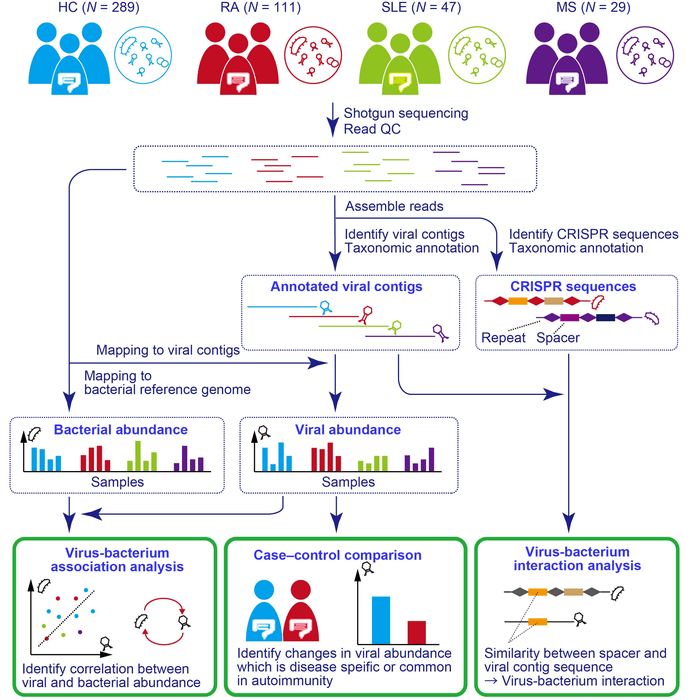Patients with autoimmune diseases have a less healthy gut virome that may contribute to the development of autoimmune diseases, according to a recent study. The most important viruses in our gut are bacteriophages that can alter the physiological abilities of bacteria. Due to their prominence in the gut microbiome, a team of researchers decided to take a deep dive into their connection to autoimmune diseases in hopes of getting answers.
Autoimmune diseases occur when the immune system wrongly attacks the body. The most common autoimmune diseases are rheumatoid arthritis and systemic lupus. Much research has proven that what lives in the gut microbiome contributes to these conditions.
The gut microbiome contains a wide variety of bacteria, fungi, viruses, and other microorganisms and it is understood that it is largely responsible for our health as it controls our immune and metabolic systems. A large part of our gut microbiome is controlled by viruses but due to their tiny size, they have proven to be hard to study. The exact connection, however, was recently studied by a group of researchers from the Osaka University Graduate School of Medicine.
The study included 476 Japanese participants. Among those, 111 were patients with rheumatoid arthritis, 47 were patients with systemic lupus erythematosus, 29 were patients with multiple sclerosis, and 289 were healthy control volunteers. The Osaka team created a way to recover viral sequences from whole-metagenome shotgun sequencing data which allowed them to determine the viruses in the gut.
“Our case-control comparison of viral abundance revealed that crAss-like phages, which are one of the main components of a healthy gut virome, were significantly less abundant in the gut of the patients with autoimmune disease, particularly in patients with rheumatoid arthritis and systemic lupus erythematosus,” says lead author of the study, Yoshihiko Tomofuji, in a statement.

The team then used CRISPR to identify possible bacterial targets of crAss-like phages. They found that the gut microflora of patients with systemic lupus erythematosus had reduced populations of the virus, Podoviridae, which has a symbiotic relationship with Faecalibacterium bacteria.
“These analyses have revealed a previously missing part of the autoimmunity-associated gut microbiome and presented new candidates that contribute to the development of autoimmune diseases,” explains Yukinori Okada, senior author of the study.
This study is published in Annals of the Rheumatic Diseases.
